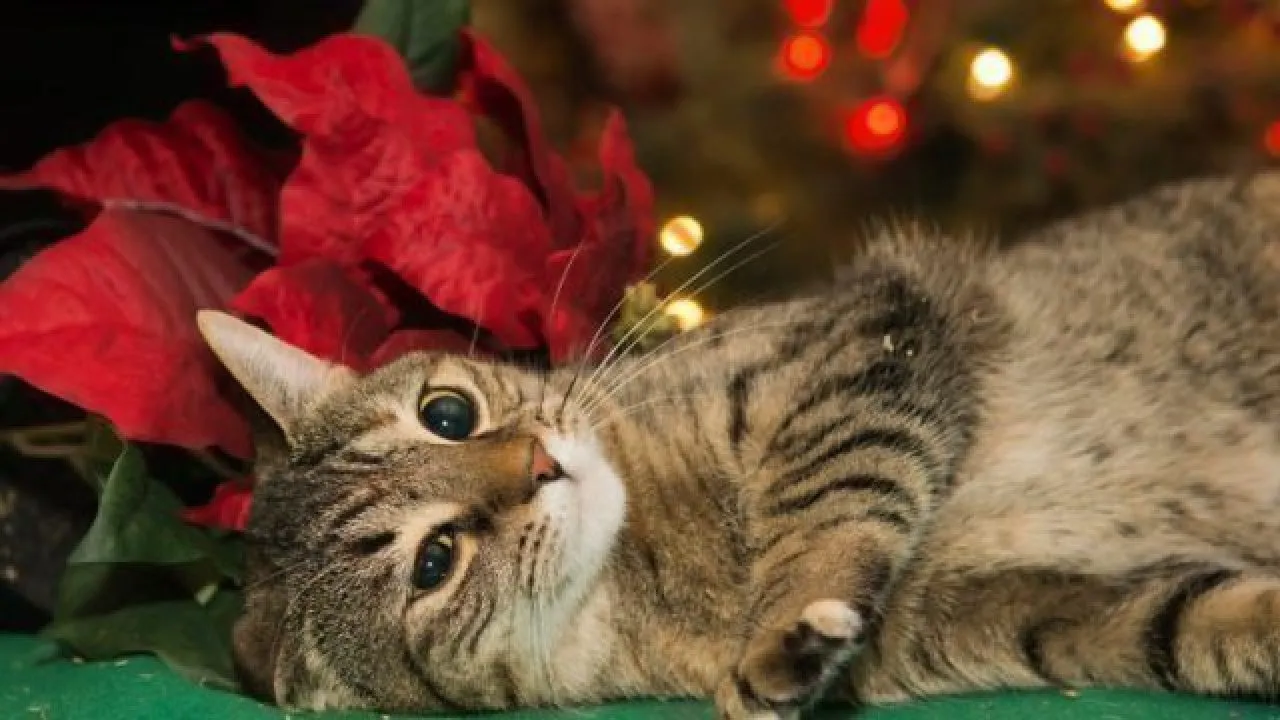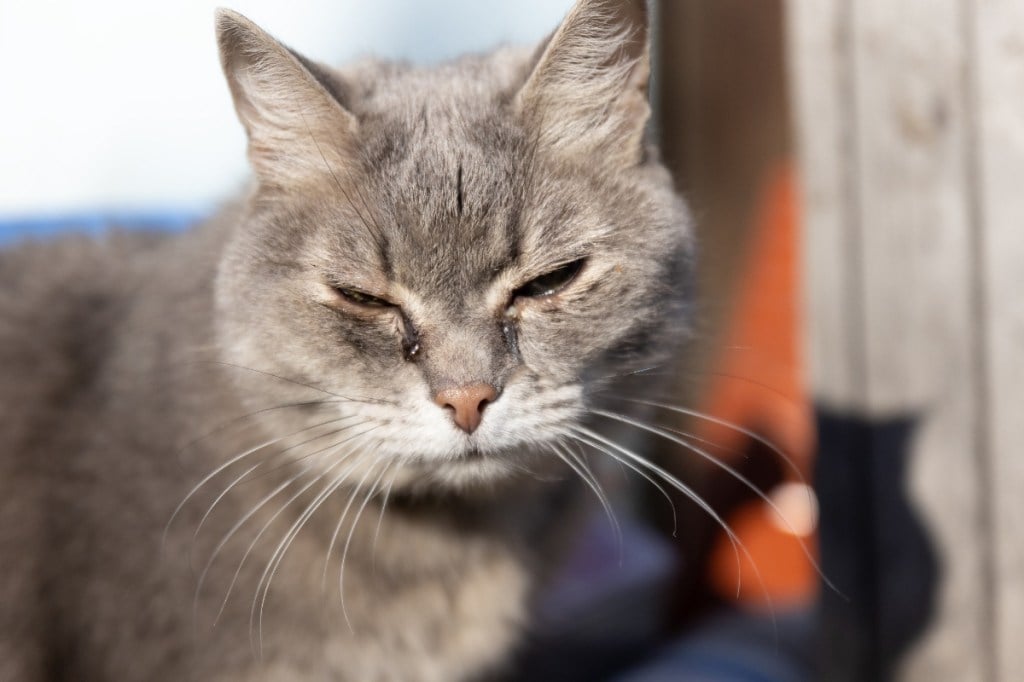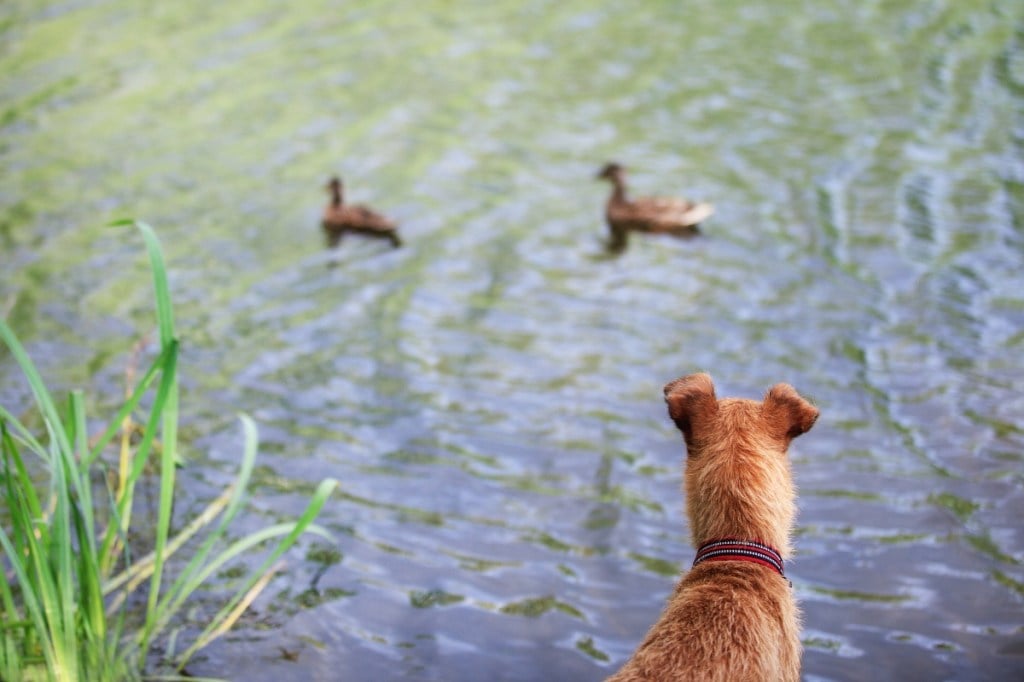Table of Contents
Last updated Nov. 17, 2021.
December 12th is National Poinsettia Day! This crimson plant was named after Joel Roberts Poinsettia, the first U.S. Ambassador to Mexico who brought back the blooms as a holiday tradition after hearing a local legend. Festive as these seasonal beauties may be, they have a bad rap with pet parents as highly toxic. However, poinsettias are not poisonous to cats, dogs or children. This urban legend has stood the test of time, originating in the early 20th century. While it’s often better to be safe than sorry – especially in cases of pet poisoning – poinsettia consumption has no severe effects for pets and requires no veterinary treatment.
Poinsettias are much safer than many other seasonal decorations, like tinsel and glass tree ornaments. There are plenty of actual holiday hazards to worry about, so why add one more to the naughty list?
Are Poinsettias Poisonous to Cats?
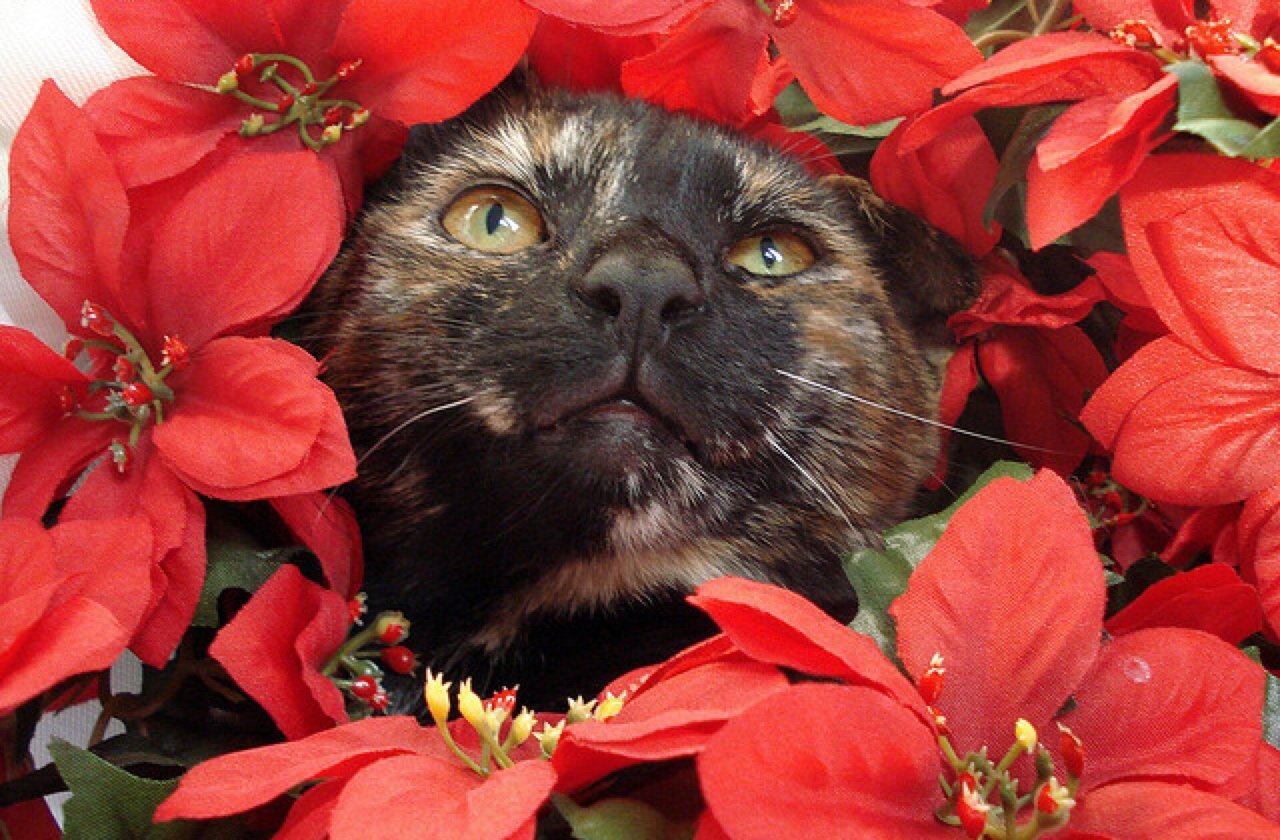
No, the holiday plant – Euphorbia pulcherrima, also called “Christmas Star” – is not toxic to any pets. “Poinsettias are usually referred to as highly toxic, but they really aren’t. Feel free to display them at Christmas,” says Dr. Dorothy Black, clinical assistant professor at the Texas A&M University College of Veterinary Medicine and Biomedical Sciences (CVM).
Very mild gastrointestinal and skin irritation can appear if an animal chews or rubs on a plant repeatedly, but nothing that requires medical treatment. The sap of poinsettias contains latex, the cause of this minor reaction; if it gets in the eye, temporary blindness may occur. Vomiting and diarrhea are also possible – like when a puppy eats an entire plant – but not likely or severe enough to warrant a vet visit.
Where Did the Myth Come From?
Poinsettias’ bad rap can be traced back to 1919 when a small child died in Hawaii after allegedly eating the flower. Perhaps the plant was mistaken for a toxic cousin – the genus Euphorbia is notorious for its members’ milky, poisonous sap. Christmas poinsettia just happens to be a less potent plant than other family members.
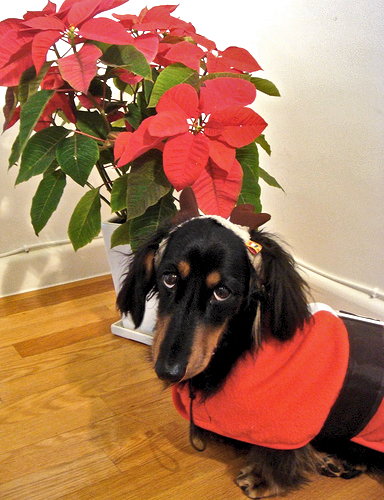
The urban legend of poinsettia’s poisonous effects on pets and children has persisted despite repeated debunking. As far back as 1975, the Consumer Products Safety Commission denied a warning label request. A 1996 study in humans found over 92% required no medical treatment for reported poinsettia toxicity. In order for any sort of severe poinsettia poisoning to occur, a 50 lb child (or pet) would have to consume 500 to 600 whole leaves, roughly 1.25 lbs of foliage. This is highly unlikely, according to Thom David, marketing manager of Paul Ecke Ranch – the first in 1900 U.S. poinsettia distributor – who has described the plant’s taste as “bitter” and “indescribably awful.”
What Are Some Actually Poisonous Holiday Plants?
Now that we’ve crossed poinsettia off your poison control list, it’s time to tackle the rest of the holiday decorations. It’s always a good idea to keep delicate or potentially poisonous scenery out of paws’ reach. In addition to the usual culprits like fragile ornaments and metal tinsel, some seasonal greenery is paws-off for pets:
- Mistletoe – Another oft-overstated pet poison, mistletoe poisoning in pets also requires consuming a large amount but the effects are much more serious: difficulty breathing, low blood pressure, decreased heart rate, disorientation, vomiting, diarrhea. Seek immediate veterinary care if you do not know how much mistletoe your pet ate!
- Holly – The berries of this wintery plant – all 400 to 600 varieties – are toxic to dogs and cats, as they contain theobromine, caffeine, and a poison called saponin. Symptoms of holly poisoning are vomiting, diarrhea, and drooling from ingestion; spiny leaves can cause excessive lip-smacking and head-shaking after consumption. Call your vet if you suspect holly poisoning in pets!
Unexpected accident or illness? That’s what we’re here for! Pet parents can rely on pet health insurance to reimburse up to 90% of their vet bills, so they can focus on what really matters: getting great health care for their pet. Find out more by getting a free quote.
